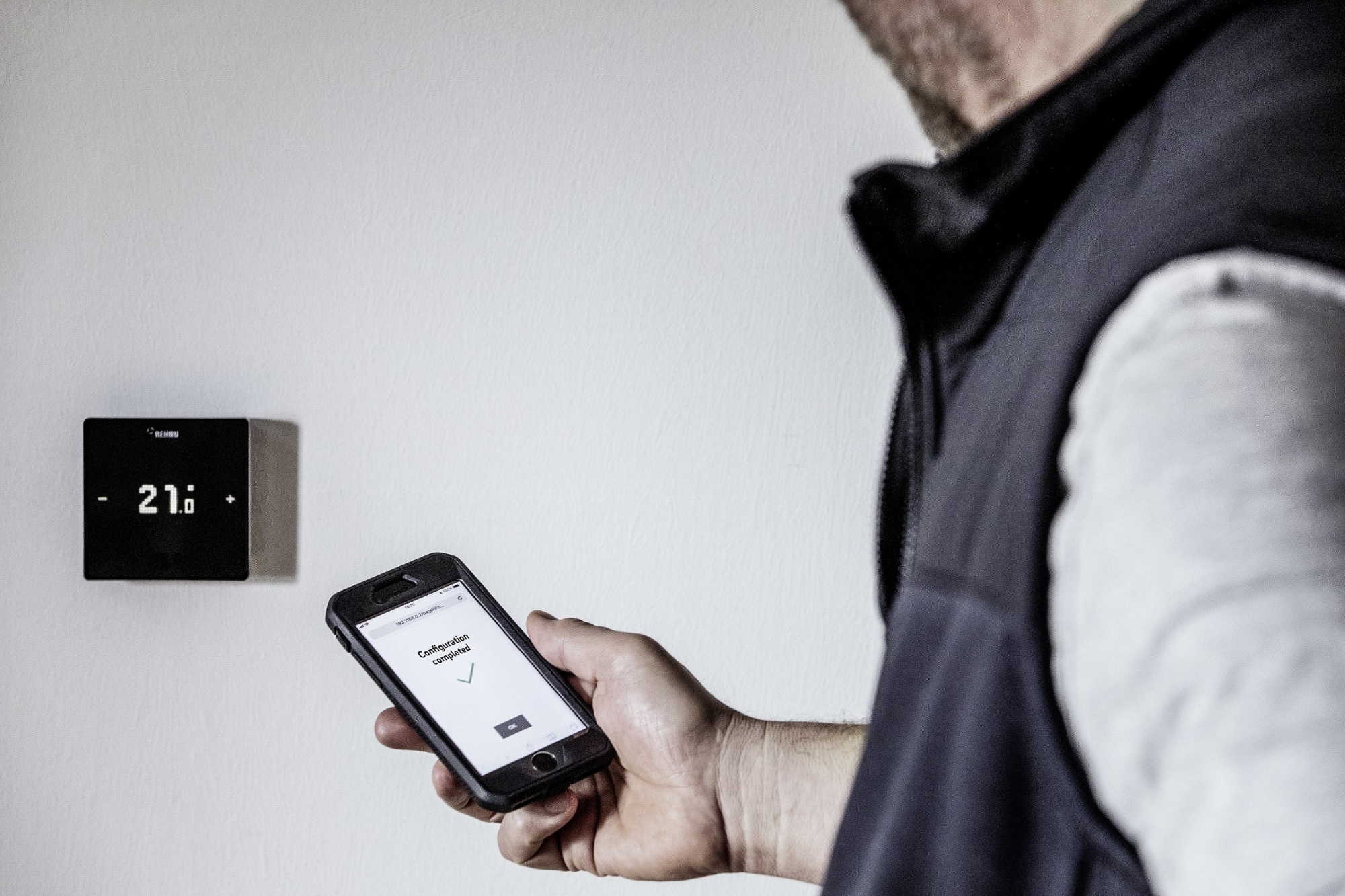What is the Smartest City in Europe?
With London previously taking the top spot for smart technology infrastructure, which European city has emerged as 2024’s smartest? The Smart City Index uses...
Read Full Article
A new guide shows that the role of smart control technology in creating sustainable space heating methods should not be underestimated.
The built environment sector must prepare for the growing popularity of smart control technology, particularly in commercial underfloor heating (UFH) systems, according to a report by REHAU.
The report is intended as a guideline for contractors and facilities managers to learn more about smart controls in commercial heating and its role in improving efficiency and lowering costs.
It particularly relates to the growing popularity of co-working spaces in commercial premises. With office rental prices continuing to rise, along with the cultural changes as a result of the COVID-19 pandemic, this focus on flexible working will only gather more pace.
As a result of this, REHAU predicts that building owners will need adaptable heating solutions and controls if they are to meet the needs of the multiple organisations hosted in these ever-evolving spaces.
“We are moving towards a smart future and the role of technology in our everyday lives is increasing exponentially,” says Franz Huelle, Head of Technical at REHAU Building Solutions.
“With guides such as “Warming The Next Generation”, we aim to raise awareness of this ongoing trend, the factors behind it, and what it means for building professionals.”
Underfloor heating is just one option when it comes to commercial space heating, so why the emphasis on this type of solution when it comes to smart technology and sustainability?
The report states that underfloor heating is commonly revered in high-specification developments, perhaps for reasons of aesthetics. However, it is also a solution that can, for many properties, represent a much more efficient and affordable means of heating than initially imagined, with the added benefit of not having radiators intruding into living or working space.
Underfloor heating is seen as an adaptable solution, particularly for increasingly popular mixed-use developments. Coupled with smart controls it can be a good option for customising the needs of different spaces.
REHAU also highlights the importance of smart heating control in mixed-use buildings. Such developments offer a solution to the ongoing housing shortage, combining residential and commercial uses in one building.
According to a 2016 report from Savills Estate Agents, London’s economic success means it requires at least 55 million square feet of residential space each year to satisfy demand – the equivalent of a 1.9 per cent rise in existing stock per annum. This equates to 64,000 new homes a year, and this figure is constantly growing. Yet due to a shortfall of 27,500 in housing stock delivery to this target, mixed-use properties represent an attractive solution and are increasing in popularity among developers both in the capital and in other cities.
“Alongside government bodies and contractors, suppliers have a major role to play in ensuring the country’s building stock is sustainable and efficient"
–Franz Huelle
Head of Technical, REHAU Building Solutions
However, this solution also comes with its own challenges from a heating perspective. Residential areas within the building may require a different heating schedule to commercial spaces such as restaurants and offices. With that in mind, adaptable solutions and controls can be an attractive option.
As uptake of smart control solutions continues to grow, REHAU sees it as vital that contractors for commercial and residential properties consider heating control systems that offer the best possible levels of flexibility, modularity and efficiency.
REHAU believes that by treating smart control solutions expectations as standard, rather than extra additions, contractors, developers, and property owners can find themselves better equipped to meet growing trends in both the commercial and residential sphere, including mixed-use buildings, multigenerational living, and increasingly fluid work schedules and locations.
Franz Huelle continues: “Alongside government bodies and contractors, suppliers have a major role to play in ensuring the country’s building stock is sustainable and efficient, and this guide is part of our commitment to achieving this.
“We want to show construction professionals that, regardless of their project’s size or complexity, expert advice and comprehensive, flexible solutions that improve overall sustainability are available.”
Picture: A photograph of a contractor installing a smart control heating system, showing a temperature control panel and the contractor holding a smartphone
Article written by Ella Tansley | Published 05 August 2020
With London previously taking the top spot for smart technology infrastructure, which European city has emerged as 2024’s smartest? The Smart City Index uses...
Read Full ArticleAs 2023 draws to a close, ThisWeekinFM reveals the facilities and workplace management industry’s trend predictions for next year. Watch the...
Read Full Article2023's final Spotlight Interview is with Andrew Fitzpatrick, a former civil engineer who has worked on highly complex construction projects, including the...
Read Full ArticleLee Rorison explains how smart data is helping Sunderland AFC become more energy efficient and on track to meet its sustainability goals. Lee is CEO at data...
Read Full ArticleAs consumers we take cloud-based computing for granted, but how can businesses leverage it to make cost savings? We joined MRI Software to discuss how cloud-based...
Read Full ArticleLibraries, theatres and leisure centres in the South East of England are being targeted for carbon emission reduction in association with SSE Energy Solutions and Medway...
Read Full ArticleFM provider Service Works Global has released a new white paper that details the seven steps for creating a smart building. The paper dispels the assumption...
Read Full ArticleCatch up on exclusive content from Infraspeak’s Intelligence for Maintenance Tour 2023, featuring an expert panel on tech-powered facilities management....
Read Full ArticleInfogrid has received funding from Original Capital, SoftBank Vision Fund 2, JLL Spark and several others. The smart building technology company has raised $90 million...
Read Full ArticleChat GPT has received significant attention in the field of natural language processing (NLP) due to its ability to generate human-like text and perform various...
Read Full Article